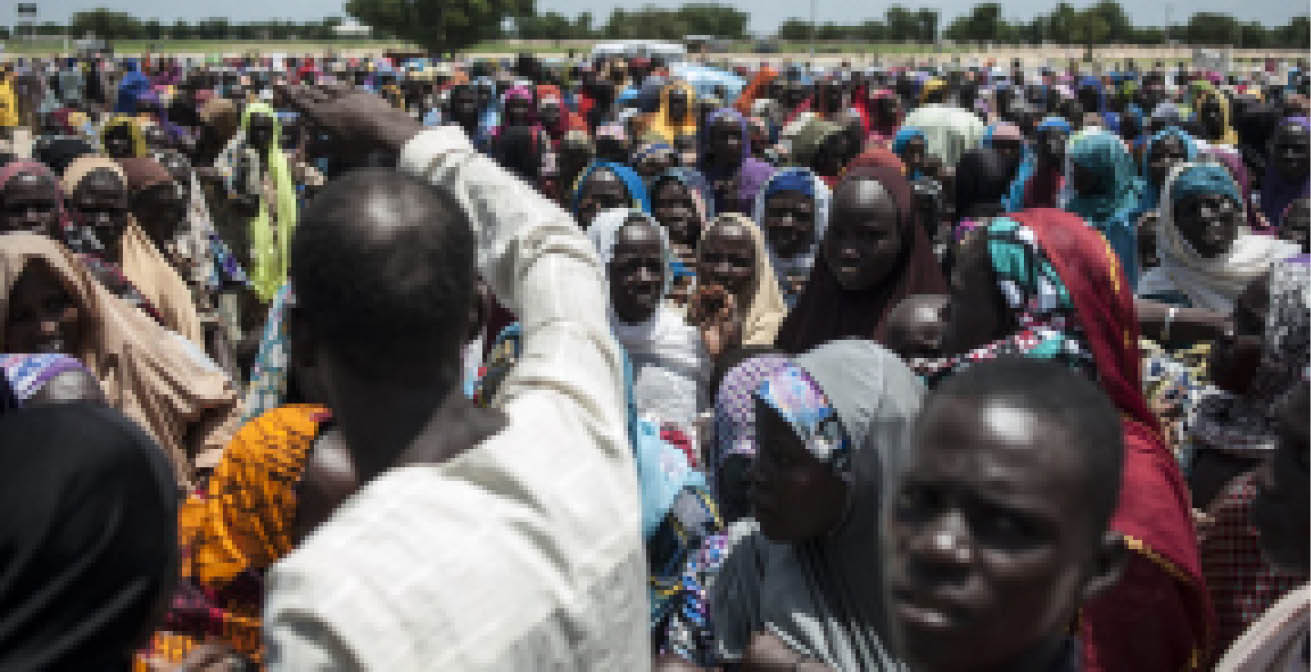Consensus on whose behalf and for whose benefit?
If at all there is a national consensus in Nigerian politics it’s that Nigerians have never enjoyed the dividends of democracy. The nation’s political leaders have created a “democracy” in which elections aren’t free and fair, elected officials ignore constitutional restraints with impunity and citizens aren’t guaranteed fundamental human rights. The success of any democracy […]

If at all there is a national consensus in Nigerian politics it’s that Nigerians have never enjoyed the dividends of democracy. The nation’s political leaders have created a “democracy” in which elections aren’t free and fair, elected officials ignore constitutional restraints with impunity and citizens aren’t guaranteed fundamental human rights.
The success of any democracy is hinged upon respect for public opinion, but Nigerian political leaders routinely and consistently ignore the general will of the people. They are happy to hold office in a democracy characterised by injustice and inequality, in which civil liberties and dissent are repressed and they can openly display nepotism, selfishness, manipulation and ignorance.
The end result is that the overwhelming majority of Nigerians have lost faith in democracy and question whether the imposed military decree for civilian administration referred to as the1999 Constitution is the most appropriate system of government for the nation. Perhaps, the most important consideration in democracy is the leadership selection process. Political philosophers believe that in the same manner in which just and healthy people govern their lives by knowledge and reason, societies struggling to be just and healthy must be governed by their best-informed minds who are knowledgeable, reasonable and compassionate.
Given the current abysmal state of affairs and the fact that the Buhari administration is on course to leave debts and other liabilities of over N50 trillion, there is very little possibility of the incoming president being able to turn Nigeria’s fortunes around and bring prosperity even if he had all these qualities. There is no denying the obvious. In order to avoid mindless killings, needless social disorder and bloodshed, things must change drastically. The failure of leadership is the failure of Nigerian democracy, which has only succeeded in breeding treasury looters and constitutional criminals who scorn “common” Nigerians.
In a true democracy, politicians do not live in luxury at public expense, they live amongst the people, learn from them; serve them; plan with them; start things they know about and build on what they have. In Nigeria, political commentators often refer to the “owners of Nigeria” who teleguide the selection of political leaders in order to frustrate democracy. They are at it again. The National Assembly has amended the Electoral Act for the second time by agreeing to political parties adopting “consensus” candidates. The original bill would have enhanced democracy through direct primaries in which every party member has a say, but President Buhari for reasons best known to him vetoed it desiring the inclusion of consensus candidacy, which doesn’t enhance democracy in any way, indeed it demeans it. Consensus isn’t the same as unanimity; it doesn’t mean 100 per cent agreement. It’s not a majority vote. Democracy is about casting ballots to determine the wishes of the majority, but when decisions are taken by consensus no formal vote is taken. Indeed the truth is that when decisions are arrived at by consensus, it’s possible that the majority can be against the decision! As for how consensus should be reached, Clause 84(9) of the new Electoral Act provides that “A political party that adopts a consensus candidate shall secure the written consent of all declared aspirants for the position, indicating their voluntary withdrawal from the race and their endorsement of the consensus candidate”. This is atrocious reasoning, which simply means that candidates with enough money to pay off all other aspirants will be returned unopposed.
It means quite absurdly that the consensus will not be between members of the party but between the aspirants, so much for democracy and the will of the people! It means in effect, every candidate should first attempt to bribe his way through by becoming a consensus of aspirants and ignoring party members. Even more absurd is the fact that there is a requirement for special conventions or nomination congresses to ratify the choice of consensus candidates. This means in effect that delegates from indirect primaries will be replaced by other delegates known as “attendees” at conventions!
The new Act also proposes that any political party unable to secure the written consent of all cleared aspirants for the purpose of consensus candidacy shall revert to either direct or indirect primaries. It is self-evident that the only justification for including “consensus candidacy” is to facilitate unpopular but wealthy aspirants emerging, despite the wishes of the majority of party members. This totally undemocratic process is what the National Assembly ironically describes as creating an “even playing field”!
Legal luminaries have objected to consensus candidacy on the basis that it impinges upon the rights of party members. Consensus doesn’t mean complete agreement, it actually means the absence of disagreement. The Nigerian public has witnessed time and again the Senate President calling for a voice vote only to declare that the “ayes have it” when the “nays” were clearly louder. The fact that honourable members decide not to disrupt proceedings in the face of obvious wrongdoings means consensus was being reached about doing the wrong thing! The NASS has decided to persist in error and bring about a type of suspicious consensus candidacy which will happen behind closed doors. They have approved the consensus of aspirants, by aspirants and on behalf of aspirants for their own benefit! So much for enhancing democracy and having regard for the will of the people!
